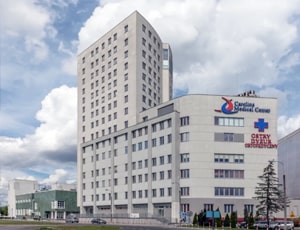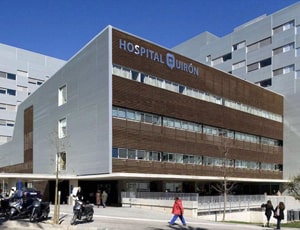The treatment for carpal tunnel syndrome depends on the severity of the condition and the duration of the symptoms. Generally, the physicians first recommend non-surgical interventions such as the use of corticosteroid injections and wrist splints to relieve the symptoms of carpal tunnel syndrome.
A carpal tunnel treatment surgery is recommended in case:
The carpal tunnel treatment surgery is an open technique. The surgeon may make a cut in the transverse carpal ligament that forms the roof of the tunnel. The carpal tunnel treatment allows more room for the median nerve and the tendons to pass through the tunnel. Thereby, the pressure on the nerve is reduced causing relief from the symptoms.
Carpal tunnel surgery is a simple outpatient procedure. You can go to the hospital, get the surgery done, and walk back to home on the same day.
On the day of the surgery, the area to be operated is cleaned with an antiseptic solution to avoid the chances of contracting an infection. The anesthetist administers a local anesthetic injection to numb the wrist area. This is done so that you do not experience any pain during the procedure.
A small cut is made in the palm near to the wrist area. Once the transverse carpal ligament is visible, a small cut is made in the ligament. This relieves the pressure on the nerve. The skin is put back and stitched together in its original position. A bandage is placed on the palm.
The following are the two alternatives to the open carpal tunnel surgery:
Endoscopic carpal tunnel surgery: The surgical procedure is similar to that of open surgery but the entire surgery is performed by looking at the camera. A small incision is made and small instruments with a camera attached to them are placed inside. The incision is small and damage is minimal. It gives you a chance to recover faster than the open technique. The healing is better and minimal pain is felt.
Key hole surgery: In this procedure, a smaller incision than normal is made on the palm. A special instrument with a light at one end and microscope at the other end is placed. This gives the doctor a chance to see the carpal ligament and carefully guide the tools to cut the targeted area.
The symptoms are usually relieved immediately after the surgery or in most cases, within a few months. You may feel numbness in the fingers for the next 15 to 16 hours.
The time you take to recover from carpal tunnel surgery depends on the severity of symptoms you had before the treatment.
Carpal tunnel surgery treatment cost varies from one country to the other. However, the cost of carpal tunnel surgery in India is quite reasonable and affordable, especially in comparison to the developed countries in the world.
There are several factors that decide the total carpal tunnel treatment cost in India and abroad. Every patient has different characteristics and requires a different approach to treatment. Some patients may experience a few complications post-surgery, while others may require no additional help at all. All these factors have an impact on the total cost of carpal tunnel surgery.
Some of the other factors that decided the total carpal tunnel surgery treatment cost include the following:
| Treatment cost in India: | 2630 |
| Treatment cost in Turkey: | 3000 |
| Treatment cost in United Arab Emirates: | 4340 |
| Treatment cost in Thailand: | 3010 |
| Treatment cost in United Kingdom: | 2060 |
| Treatment cost in Israel: | n/a |
| Treatment cost in Spain: | 6000 |
| Treatment cost in Singapore: | 3000 |
| Treatment cost in Tunisia: | 2000 |
| Treatment cost in Greece: | 1600 |
| Treatment cost in Saudi Arabia: | n/a |
| Treatment cost in South Africa: | n/a |
| Treatment cost in Hungary: | 2640 |
| Treatment cost in Lithuania: | 4260 |
| Treatment cost in Switzerland: | n/a |
| Treatment cost in Czechia: | n/a |
| Treatment cost in Malaysia: | n/a |
| Treatment cost in Morocco: | n/a |
| Treatment cost in Poland: | 6070 |
| Treatment cost in South Korea: | 6000 |

Singapore, Singapore
Mount Elizabeth Hospital is a multispecialty healthcare facility operated by Parkway Health. The hos...more
![]() Private Rooms
Private Rooms
![]() Translator
Translator
![]() Nursery / Nanny Services
Nursery / Nanny Services
![]() Airport Pick up
Airport Pick up

Warsaw, Poland
History Carolina Medical Center is one of the best and clinically advanced orthopedics and sports m...more
![]() Accommodation
Accommodation
![]() Airport Transfer
Airport Transfer
![]() Choice of Meals
Choice of Meals
![]() Interpreter
Interpreter

Barcelona, Spain
Quironsalud Barcelona Hospital is built at a very convenient location in Barcelona. The hospital is ...more
![]() Accommodation
Accommodation
![]() Airport Transfer
Airport Transfer
![]() Choice of Meals
Choice of Meals
![]() Interpreter
Interpreter

Orthopaedics & Joint Replacement Surgeon
Ulus, Turkey
22 Years of experience
USD 240 for video consultation

Orthopaedic Surgeon
Noida, India
22 Years of experience
USD 35 for video consultation

Orthopaedic Surgeon
Delhi, India
20 Years of experience
USD 32 for video consultation

Orthopaedic Surgeon
Dubai, U.A.E.
12 Years of experience
USD 140 for video consultation
Q. How many days should I take rest?
A. It depends on the severity of symptoms you have and the hand that was operated. Most likely, you can get back to normal in 10-15 days.
Q. Will it pain after carpal tunnel treatment is over?
A. You may not experience pain because of the effect of anaesthesia, which lasts for at least 15 hours. Moreover, the doctor may give you mild painkillers to manage pain.
Q. Do I need to stay at the hospital?
A. No, it is not necessary. You can go back to home after the surgery is over.
Q.Do I need to come back for removal of the stitches?
A. Yes, the stitches need to be removed after one to two weeks.
Q. Will it come back again?
A. Chances are very rare. It happens only when you very severe nerve damage.